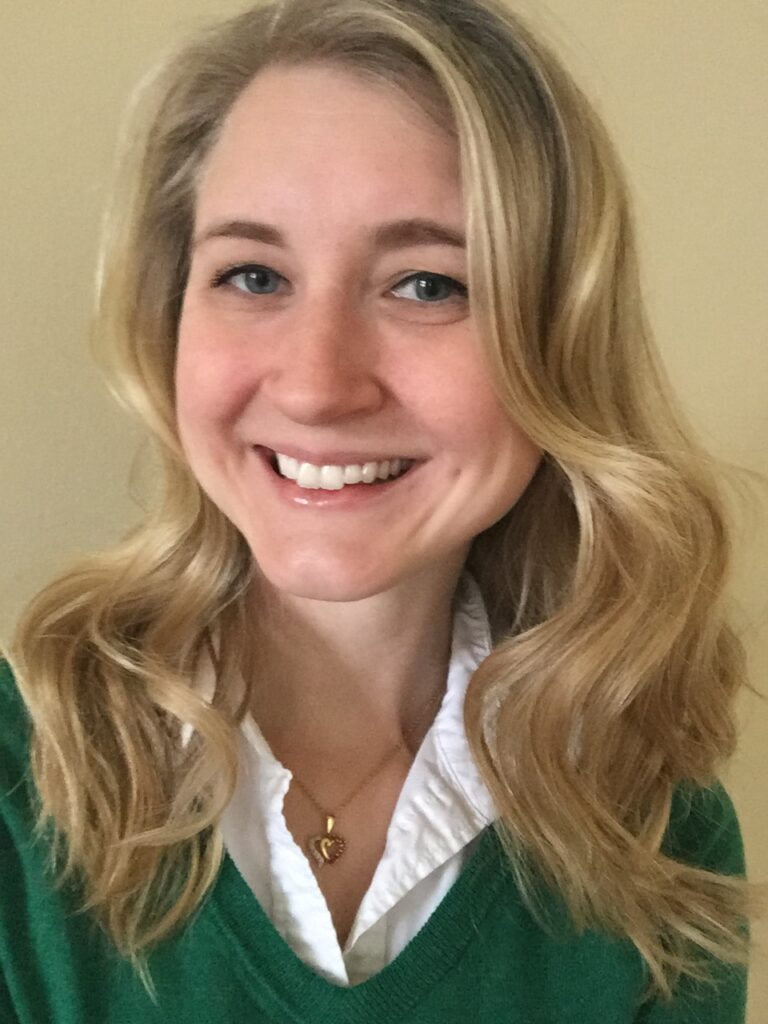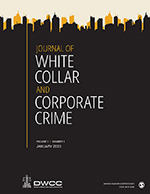Most criminology and criminal justice programs at universities around the country do not even offer a class in corporate and white collar crime.
And if they do, very few require students to take the class before graduation.
That’s the preliminary finding of a study by Kimberly Barrett of Eastern Michigan University.
“Eastern Michigan University graduate student Maegen Gabriel and I are currently working on an investigation of the representation of corporate and white collar crime across undergraduate criminology and criminal justice curriculum in the U.S.,” Barrett told Corporate Crime Reporter in an interview.
“Very preliminarily, the data suggest most programs don’t even offer coursework on corporate crime, much less require students to take it. This is consistent with prior findings about the representation of corporate crime in criminology. That is something we are continuing to collect data on. We are hoping to publish that over the course of the next several months.”
“When you ask – why don’t more people care about corporate crime? – that is one answer. They go to school. They major in criminology and criminal justice. And they are not required to take a course in corporate crime. That feeds into their narratives of what crime is, who are the offenders and who are the victims.”
“We are months away from publication of this study. But what we are finding is that most programs do not even have a class on white collar and corporate crime. And of those that do, very few require it.”
“A couple of years ago, there was a study of criminology doctoral programs. Next to none of them required a white collar or corporate crime class. That meant that you could get a doctoral degree in criminology without studying white collar and corporate crime.”
“Another study was of criminology journals and they found that these journals were simply not publishing on white collar and corporate crime.”
“To my knowledge, the first criminologists to ask this question were Richard Wright and David Friedrichs, who found corporate crime largely unrepresented in undergrad curriculum. This was in the 1990s, and the question about undergrad curriculum hasn’t been entertained since.”
“Lynch, McGurrin, and Fenwick explored representation of white collar crime in criminal justice journals, textbooks, and PhD curriculum in their 2004 publication – Disappearing act: The representation of corporate crime research in criminological literature.”
“The analysis revealed that of the 21 criminology doctoral programs surveyed, only 9 offered a class on white collar crime, and none of them required the course. More recently (2013), McGurrin and colleagues updated and replicated the study, and found 16 of 38 doctoral programs offer a course in white collar crime, but only one requires it – and this is for a specific track within their curricula. Both studies document corporate crime as on the periphery of criminology journals and textbooks. Another EMU graduate student – Demarco Johnson – analyzed victimology textbooks and found similar issues with under-representation of environmental and corporate crime.”
To help fill the gap, a group of corporate criminologists have started The Journal of White Collar and Corporate Crime. Barrett is an associate editor of the journal.
“The journal was founded by Gregg Barak and Anne Alvesalo-Kuusi in 2018,” Barrett said. “I was approached by them and asked if I wanted to get involved as an editorial board member. The first meeting of the board happened at the American Society of Criminology meeting in 2017 or 2018. Gregg put his vision before us. It was well received. Many of us thought – the time is right for a journal that focused on researching the crimes of the powerful.”
“I became further involved as an associate editor. The journal is also the flagship journal of the American Society of Criminology’s Division of White Collar and Corporate Crime. Several members are also involved on the editorial board as reviewers.”
“We publish theoretical articles and empirical investigations. We publish qualitative work and quantitative work.”
How often is it published?
“We publish two issues a year. We are now in our second volume and second issue.”
Looking at the editorial board of the journal, it looks as if maybe half are from outside the United States. Do you find that there is more interest in corporate and white collar crime outside the United States?
“My impression is that within the United States there tends to be a focus on interpersonal acts of street crime. U.S. based researchers are not as open to critical explanations of crime and justice, or political and economic explanations of crime and justice.”
Before you went to the University of South Florida, what was your understanding of corporate and white collar crime?
“I didn’t have formal education in corporate crime. In my undergraduate years, I did not have course work in corporate or white collar crime. As I got into this field, I wanted to know more. When I got to USF, I took a class in radical criminology and one in corporate crime. I felt as if it was transformational for me.”
Your introduction to this area came through Michael Lynch?
“Michael Lynch founded the field of green criminology in the early 1990s. Mike was concerned with the fact that criminologists in general were not discussing issues of the natural environment. Issues like political economy and corporate crime remained on the peripheries of crime and justice.”
“In the late 1980s, there were a series of high profile environmental disasters that sensitized the public at large to the issue – the Exxon Valdez oil spill, Chernobyl, Bhopal. Mike thought the time was appropriate that criminologists take serious corporate offending as it relates to the environment. He issued a call for the study of what he called green criminology.”
“This is something that I learned in taking course work with Mike. It gave me a language of some of what I was observing in the field. It also made me more interested in wanting to know more about corporate crime. I then began asking questions – why isn’t this in more curricula? Why isn’t this required of criminal justice students? Why aren’t we devoting more space and time to understanding these issues?”
“I became deeply concerned with these issues. And I try to incorporate it in my own teaching. It’s a central theme in my research. Corporate crime is something I have been focused on for the better part of the last ten years now.”
You are a co-author of a textbook with Michael Lynch, Michael Long and Paul Stretesky – Green Criminology: Crime, Justice and the Environment. It was published by the University of California Press in 2017.
How many courses in green criminology are there in the United States?
“Not many – in the single digits. Students don’t know how much they care about it until they learn about it. It’s like the chicken and the egg problem. I would love to see environmental crime classes and corporate crime classes as required classes in the field.”
“Once students are exposed to the material, they develop more interest and enthusiasm for it.”
[For the complete q/a format Interview with Kimberly Barrett, see 35 Corporate Crime Reporter 35, Monday September 13, 2021, print edition only.]


